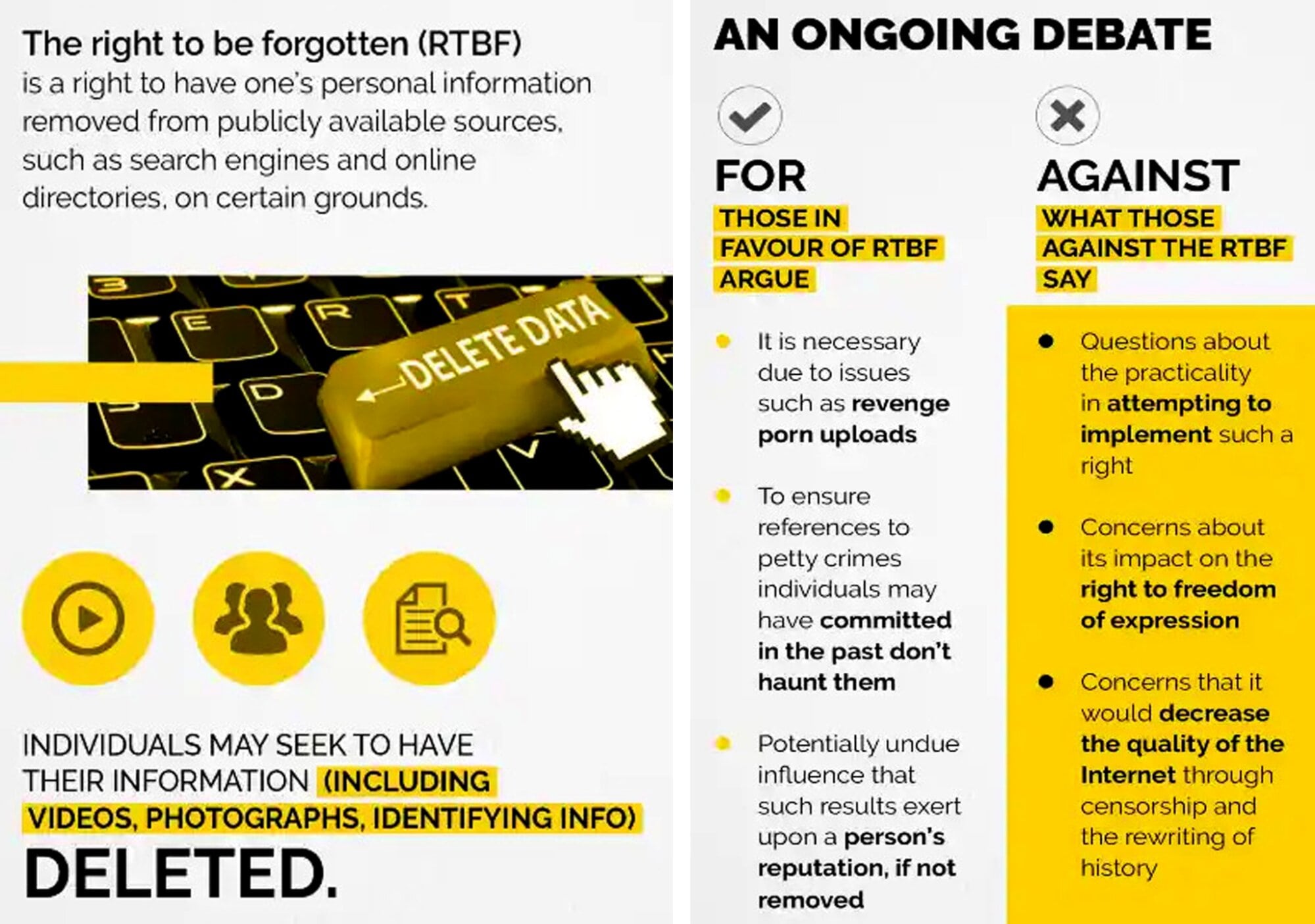Context
-
Recently, the Centre told the Delhi High Court that the “right to be forgotten” is part of the fundamental right to privacy, but added it has no significant role to play in the matter. Petitions across courts have been seeking enforcement of this “right” — a legal principle that is not yet backed by statute in India.
What is the right to be forgotten?
- It allows a person to seek deletion of private information from the Internet.
- The concept has found recognition in some jurisdictions abroad, particularly the European Union.

- While the right is not recognised by law in India, courts in recent months have held it to be an intrinsic part of the right to privacy.
Which countries have such laws?
- General Data Protection Regulation (GDPR) of EU provides for the right to erasure of certain categories of personal data
- Russia in 2015 enacted a law that allows users to force a search engine to remove links to personal information on grounds of irrelevancy, inaccuracy and violation of law.
- Recognised to some extent in Turkey and Siberia, while courts in Spain and England have ruled on the subject.
What is the position in India?
- The Centre told the Delhi High Court that the right to privacy has been recognised as a fundamental right in the K S Puttaswamy judgment (2017) and that the ‘right to be forgotten’ is evolving in India.
- The government said the Personal Data Protection Bill (a Joint Parliamentary Committee’s report on which was tabled on December 16), contains provisions to the doctrine of the ‘right to be forgotten’.
How have courts ruled on this?
- In May 2019, Justice Pratibha M Singh of the Delhi High Court on MeToo allegations said the “right to be forgotten” and “right to be left alone” are inherent aspects of the right to privacy
- In April 2021, the court directed removal of a judgment from search results; the order is now being opposed by Google.
- In January 2017, the Karnataka High Court ordered its registry to ensure that any Internet search engine does not reflect a woman’s name in an order passed in 2015.
- And in November 2020, the Orissa High Court, ruling in a case relating to videos uploaded on Facebook by a rape accused, opined that “allowing such objectionable photos and videos to remain on a social media platform, without the consent of a woman, is a direct affront on a woman’s modesty and, more importantly, her right to privacy”.
Conclusion
- In the absence of statutory backing, the relief being sought is likely to clash with the public’s right to know and the functioning of online platforms such as Google and Twitter.
Visit Abhiyan PEDIA (One of the Most Followed / Recommended) for UPSC Revisions: Click Here
IAS Abhiyan’s Most Popular Courses
-
IAS Abhiyan Prelims inShots has been launched for Prelims 2022@75/-: Click here to Subscribe
-
IAS Abhiyan Main Value Edition Pro-Series is available @99/-.–Click here to Know
-
IAS Abhiyan Current Affairs Course for Prelims-2022 is now available @199/-. Click here to Know
-
IAS Abhiyan Advance Learning Programme (ALP)-2022 is available now @599/-. Click here to Know
-
IAS Abhiyan Prelims Mock Test Series: Lakshya 2022 is available now @199/-. Click here to Know
IAS Abhiyan is now on Telegram: Click on the Below link to Join our Channels to stay Updated
IAS Abhiyan Official: Click Here to Join
For UPSC Mains Value Edition (Facts, Quotes, Best Practices, Case Studies): Click Here to Join
